
BlackBerry brings protected messaging to the enterprise
One of the major concerns of mobile use in the enterprise is keeping company data secure. BlackBerry Messenger (BBM) already offers a reliable messaging service with millions of users worldwide, but now with the launch of a new service it lets employees benefit from speedy, reliable and private business communication.
The new BBM Protected service offers enhanced security for messages sent between BlackBerry devices by adding an extra layer of encryption to the standard BBM which encrypts messages in transit.
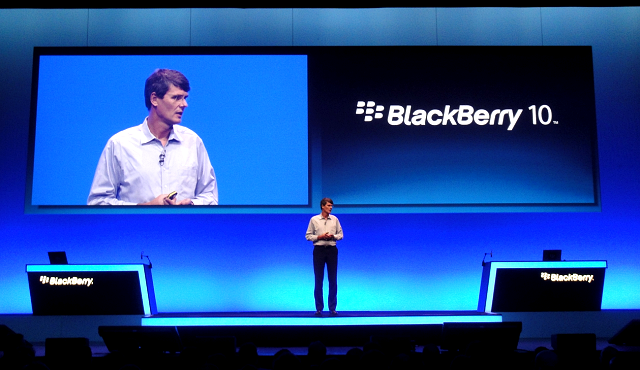
BlackBerry Enterprise Service 10 top for cost effectiveness
BlackBerry has some long-waited good news to announce in the shape of a high dose of praise for its enterprise mobility management solution.
The company’s BlackBerry Enterprise Service 10 (BES10) scored highest when it came to cost effectiveness in a report from market research company Strategic Analytics.

BlackBerry and T-Mobile part ways
It is unusual for a smartphone manufacturer to announce it no longer wants to have its devices available at a major mobile operator's stores. Yet this is what the troubled BlackBerry has done.
BlackBerry revealed that it will not renew its agreement with US mobile operator T-Mobile once the license expires later this month, following the controversy triggered by the latter's attempt to move BlackBerry customers to other brands. This decision will effectively put an end to new sales of BlackBerrys at T-Mobile, come April 25.
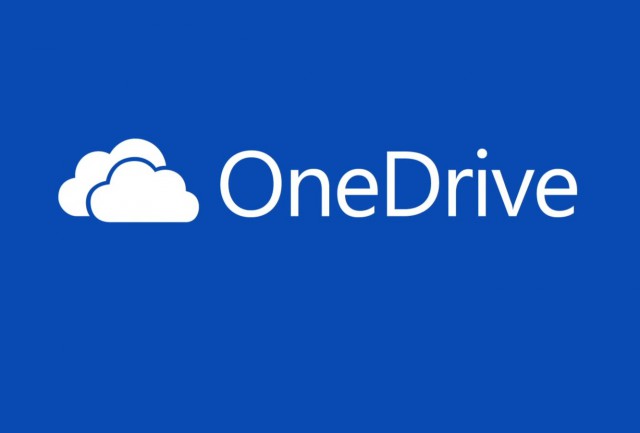
BlackBerry brings OneDrive to BB 10 smartphones
After being forced to drop the SkyDrive name following a legal dispute with UK broadband provider Sky, Microsoft relaunched its cloud storage service, last month, under a new, yet somewhat familiar moniker, OneDrive. Rebranded apps quickly hit Android, iOS, OS X and Windows Phone, adding new features in the process.
With the OneDrive roll-out almost complete, BlackBerry (yes, that is right) just introduced the cloud storage service on its own platform, BlackBerry 10. The move effectively gives Microsoft access to more potential customers, and allows OneDrive to better rival the availability of other market competitors, like Box.

Yahoo and BlackBerry worm further into your life with mobile ads
There are few people who like ads. Sure, they can be works of art -- certainly there are some advertisements that are infinitely better than a lot of the dirge pumped out by television networks -- but while advertisements on television can be fairly easily avoided (thank you TiVo -- other PVRs are available!) it is a different matter on a computer or mobile device. "Opting" to watch a mindblowing ad for Apple, Guinness or Honda is one thing, but to have unavoidable -- and usually crappy -- advertisements forced upon you whilst browsing the web or using an application is an entirely different matter.
There are groups of people who are happy to endure these adverts because they fund apps, and make it possible for developers to provide their hard work free of charge -- you may fall into this group and have perhaps been able to configure an automatic ad filter for your eyes. But there are larger legions for whom ads are just plain, damned irritating. In some instances it is possible to pay to avoid them, but this is not always the case. If BlackBerry and Yahoo get their way, advertisements are going to become rather more noticeable.
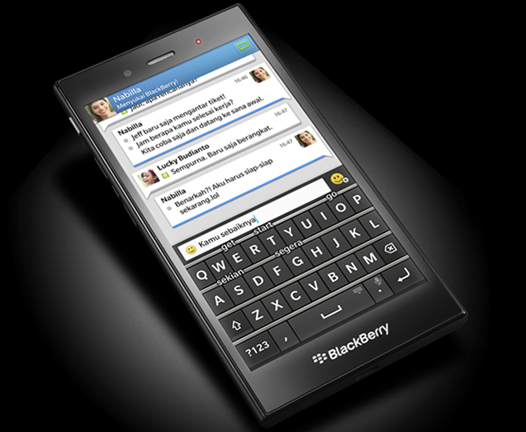
BlackBerry proves it's still kicking, announces Z3, Q20 smartphones
BlackBerry has carefully chosen the second day of the MWC conference to announce two new smartphones that run BB 10 OS, namely the full-touch Z3 and QWERTY-equipped Q20. Smart choice. After all, the big players have already showcased their latest products, which gives the Canadian company the chance to be put center-stage today.
Neither the Z3 nor the Q20 are meant as replacements for the currently-available Z10, Z30, Q5 or Q10, which BlackBerry introduced last year. The new devices are instead aimed at emerging markets and the core BlackBerry audience, respectively.
Adobe Photoshop Express, BBM to arrive on Windows Phone
Windows Phone is off to a good start in 2014. Microsoft just announced that more smartphone vendors will embrace its tiled operating system, and extended the hardware support to include more Qualcomm Snapdragon processors. A new iteration is reported to arrive shortly, to bring its feature set on par with those of its main rivals, Android and iOS.
And, today, BlackBerry announces that it will bring its BBM service to Windows Phone. "BBM continues to grow in popularity as millions of people use our mobile platform for chatting and connecting with friends or colleagues, and we are very excited that we will soon welcome Windows Phone and Nokia X users to the BBM community", says BlackBerry Global Enterprise Solutions president John Sims. Also, Adobe's Photoshop Express will soon be offered on the platform as well, after reaching Android and iOS first.
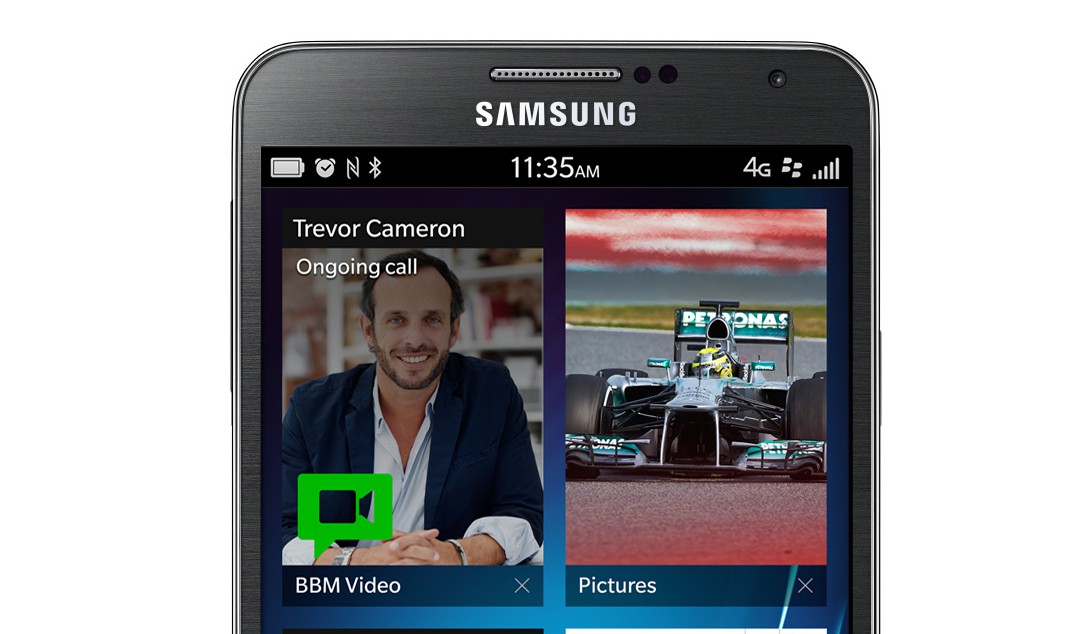
Hey, BlackBerry, launch BB 10 OS firmwares for Android smartphones
Research firm Gartner places BlackBerry's smartphone market share for all of 2013 at just 1.9 percent, as only 18.6 million units of the company's branded handsets got in the buyer's hands in the past year. Meanwhile, the most popular mobile OS, Android, raked in a whopping 758.7 million unit sales, giving it a market share of 78.4 percent. Why not make the best out of a bad situation by launching BlackBerry 10 OS firmwares for Android smartphones, to slow down the fast-decreasing market share and, maybe, recoup a small part of the one the OS has lost so far?
BlackBerry is basically in a hole it cannot crawl out of right now, as people just do not buy its smartphones as much as they used to. Giving them an option to try its latest mobile OS, BlackBerry 10, will theoretically increase the company's chances of getting back into the game, without allocating lots of resources to the development of new devices, which may or may not (the latter is more likely) be better received compared to the current lineup. And here is how BlackBerry could do it.

BBM 2.0 arrives with Channels, Voice and other new features on Android, iOS
BlackBerry is struggling in the smartphone market, but the Canadian company is seeing better results with its BBM service, which grew by 20 million users in just one week after it arrived on rival platforms Android and iOS in late-2013. It is no wonder then that BlackBerry is focusing on making BBM even better, especially for those who are not using its branded smartphones.
Today, BlackBerry announced the release of BBM 2.0, for Android and iOS, and BBM 10.3 for BlackBerry OS. The latest version adds many new features to the available apps, with BBM Voice and Channels finally arriving on rival platforms as well, allowing its Android and iOS users to make free calls via Wi-Fi and cellular networks, and take advantage of the built-in networking options.
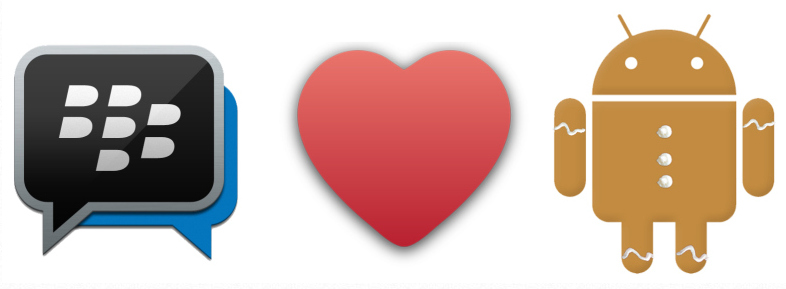
BlackBerry to soon offer BBM on Android 2.3 Gingerbread smartphones
Even though Gingerbread's days of glory have long passed, the three-year old distribution is still running on more than 20 percent of all Android devices accessing Google Play. Those are smartphones actively used by people across the globe, which will not receive an upgrade to a newer version of the mobile operating system.
This presents a problem for BlackBerry. The Canadian maker wants to increase the user base of its BBM service, but the app available on Google Play is only compatible with smartphones that are running Android 4.0 Ice Cream Sandwich and newer. BBM for Android does not even work on tablets, unlike its iOS counterpart. Luckily for those stuck on Gingerbread that is shortly set to change.
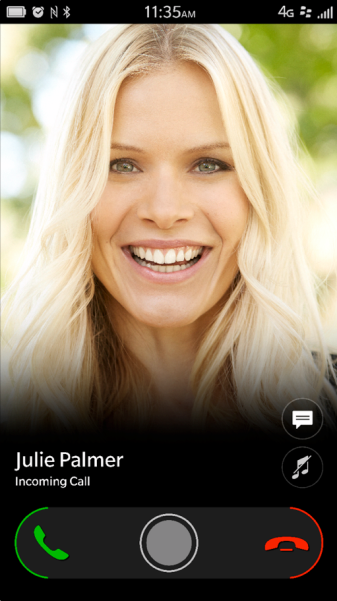
BlackBerry 10.2.1 update rolling out now
BlackBerry's new smartphone lineup may not be as popular as the Canadian maker would have wanted it to be, with sales of the latest models unable to top those of legacy devices. Despite the poor performance, BlackBerry is not giving up (not yet anyway) as it is frequently launching updates for the BB 10 operating system, with a new version announced today.
BlackBerry 10 OS version 10.2.1 starts to roll out across the globe, with users from US, Europe, Canada, the Middle East, Africa, the Asia Pacific region and Latin America set to receive the latest update, starting today, on their devices. There is no word on which BlackBerry 10 OS smartphone will get the new software version first, nor whether the first stage includes mobile operator-branded models. Now let us take a look at the (major) changes.

BlackBerry Enterprise Server to soon support Windows Phone?
BlackBerry's efforts to improve its sliding sales and consumer relevance with the BlackBerry 10 touch-friendly lineup have failed. In fact, the company's latest available handsets are actually selling less nowadays compared to the old, and dated, BlackBerry 7 OS devices. For anyone paying attention that means the writing is already on the wall, but BlackBerry is (still) planning and hoping to make a comeback.
After bringing BBM to Android and iOS, the Canadian maker will shift focus back to QWERTY keyboards, and away from all-touchscreen designs, and could also embrace more competing platforms in BlackBerry Enterprise Server. The company's CEO John Chen hinted that the enterprise-grade device management software might add support for Windows Phone, on top of Android and iOS.
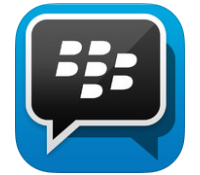
BBM update adds support for Wi-Fi iPads and iPods
Canadian maker BlackBerry is expanding the reach of its BBM service through the latest update for the iOS app, that now includes support for non-cellular Apple-branded devices. As a result, Wi-Fi iPad and iPod users can also communicate with their BBM-using friends, as the app no longer limits access only to iPhones and 3G/4G iPads.
BlackBerry has yet to bestow non-cellular Android devices with the same ability, as BBM is still listed as being incompatible with tablets like the Wi-Fi 2013 Google Nexus 7 even in the latest version of the app that arrived yesterday. Now let's take a look at what (else) the Android and iOS updates for BBM add.
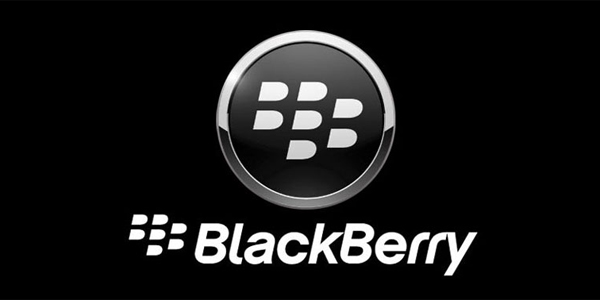
The state of BlackBerry and Nokiasoft
Over the past week, both BlackBerry and Nokia were in the news for very different reasons. BlackBerry abruptly abandoned its auction process and opted to raise $1 billion in debt to attempt a turnaround. Meanwhile, as the Microsoft deal awaits closing, Nokia announced that Lumia shipments hit an all-time high in the most recent quarter.
Let's take a deeper look at the prospects of each company.

CEO Heins steps aside as BlackBerry calls off sale
BlackBerry CEO Thorsten Heins is to resign from his position at the head of the company, and the board of directors is also facing a reshuffle. The struggling mobile firm was set to be sold to a consortium lead by Fairfax Financial Holdings for $4.7 billion but that plan, announced last month, has now fallen through.
BlackBerry instead intends to raise $1 billion in fresh funding from a group of investors including Fairfax.
